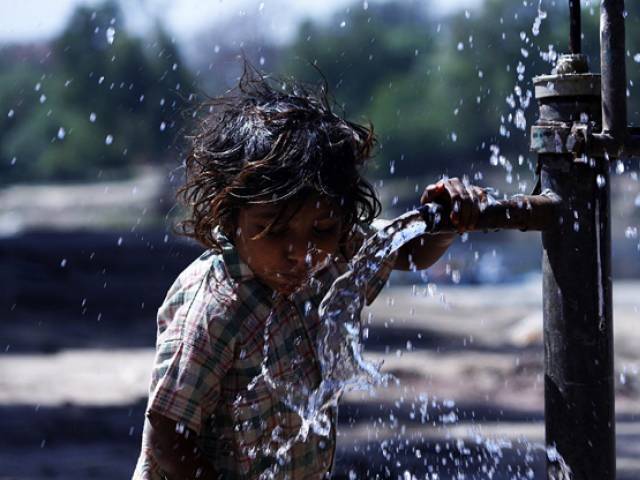
The meeting was held at the Capital Development Authority (CDA) Headquarters in Islamabad and was attended by the Special Assistant to Prime Minister on Capital Development Authority Affairs Ali Nawaz Awan, CDA Chairman and Islamabad Capital Territory (ICT) Chief Commissioner Amir Ali Ahmed, members of the CDA Board and other concerned departments.
During the review meeting, Mott MacDonald-Pakistan presented different proposals for transporting water from the dam to the city. The proposals were discussed in detail, including the construction of a pipeline from the dam to the city.
Awan said that supply of water through Ghazi Brotha to the city was among the priorities of the incumbent Pakistan Tehreek-e-Insaf (PTI) government so that issue of water shortage in the city can be resolved once for all.
The PM’s special assistant on CDA had recently held a news conference in the federal capital where he had accused the Islamabad Metropolitan Corporation (IMC) Mayor Sheikh Anser Aziz of poor leadership and general apathy towards the water crisis in the city, noting that the city received less than half of the water it was supposed to get from the myriad of water sources including the Simly Dam, Khanpur Dam and dozens of tube wells.
CDA Chairman Ahmed stated that the population of Islamabad had more than doubled over the past 20 years, from just over 805,235 in 1999 to over 2.07 million in 2017.
“To cater growing water requirements of the city, this project was of immense importance,” Ahmed said.
The CDA chief added that water will be provided to the federal capital through a 45 kilometre-long water supply line from the dam.
Once complete, the twin cities of Islamabad and Rawalpindi could expect to receive around 200 million gallons per day (MGD) of water of which 100 MGD will be supplied to Rawalpindi while rest will be consumed in Islamabad.
He added that the project will be jointly funded and completed by Punjab and the federal governments.
Mott MacDonald has been working on a host of engineering projects in Pakistan for around 50 years. One of the reasons it is uniquely qualified to offer proposals on the Ghazi Barotha water supply project is because they were the original company who worked on the Ghazi Barotha Hydropower project for which it claims to have won the Energy Institute International Platinum Award.
Moreover, the company has also worked on improving the water and sewerage services in the garrison city through rehabilitation of the existing works and construction of new water supply and sewerage facilities.
“We enabled the provision of safe and reliable water supply and improved the urban situation for the population of Rawalpindi,” Mott MacDonald claim on their official website.
The project had been conceived in 2006 when former military ruler General (retired) Pervez Musharraf was still at the helm. It was estimated to cost around Rs17 billion and work on the project was scheduled to commence in March 2009 and it was supposed to have been completed in five years by 2013.
But owing to issues over water division from the divisible pool for provinces and then price, the Ghazi-Barotha water supply scheme had been pending for the past 13 years. The previous Pakistan Muslim League-Nawaz (PML-N) government had started work on it with Mayor Aziz sending a project concept-I to the planning ministry for approval.
Even though the project’s cost had ballooned to Rs85 billion by the time the incumbent Pakistan Tehreek-e-Insaf (PTI) took over, the government released Rs500 million towards the project.
It is spread over three phases. In the first phase, the twin cities were to be provided with 200 million gallons of water a day by laying a 60-kilometre-long, 80 inch-wide pipeline from the Tarbela dam at Ghazi Barotha to a water treatment plant at Sangjiani in Islamabad.





1732356840-0/Copy-of-Untitled-(1)1732356840-0-270x192.webp)



1732355030-0/BeFunk_§_]__-(41)1732355030-0.jpg)
1732340798-0/BeFunk_§_]__-(35)1732340798-0.jpg)






COMMENTS
Comments are moderated and generally will be posted if they are on-topic and not abusive.
For more information, please see our Comments FAQ